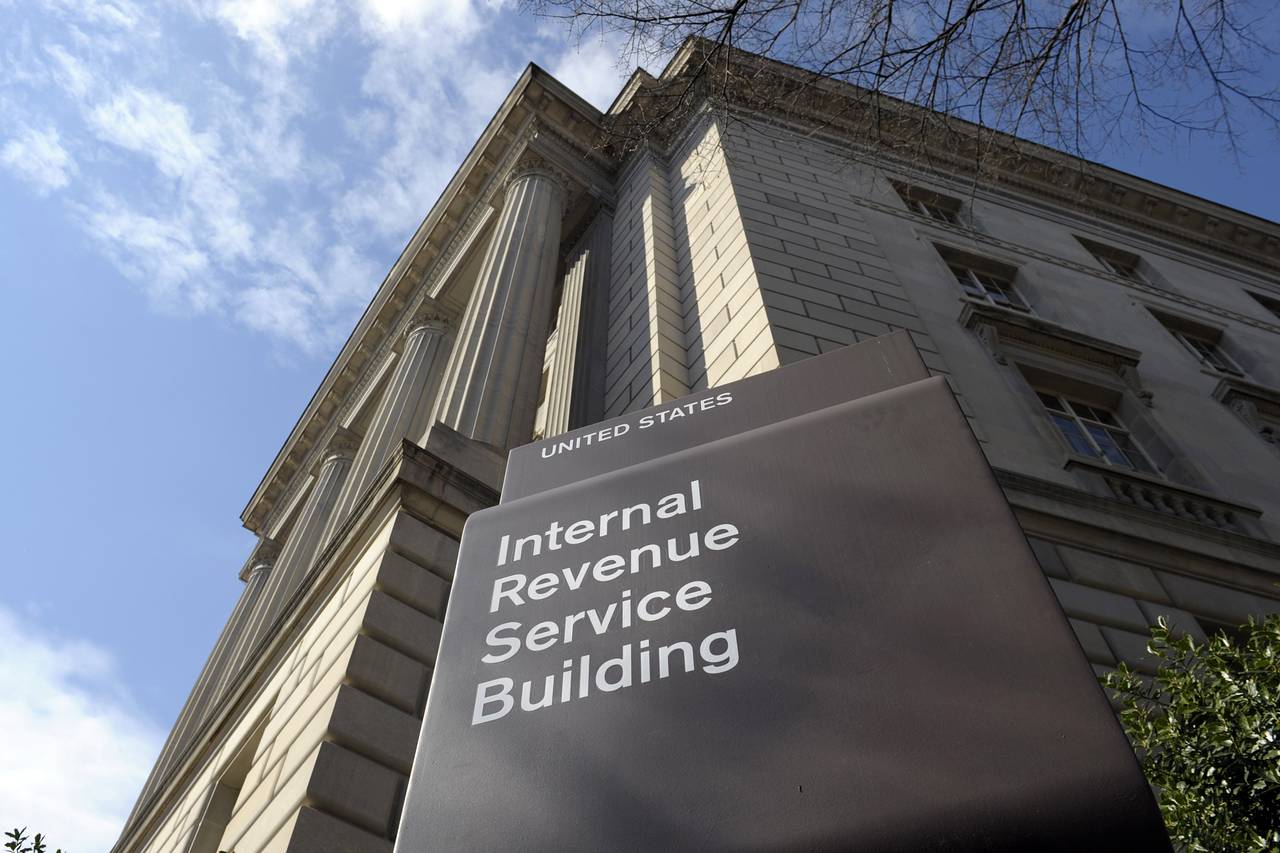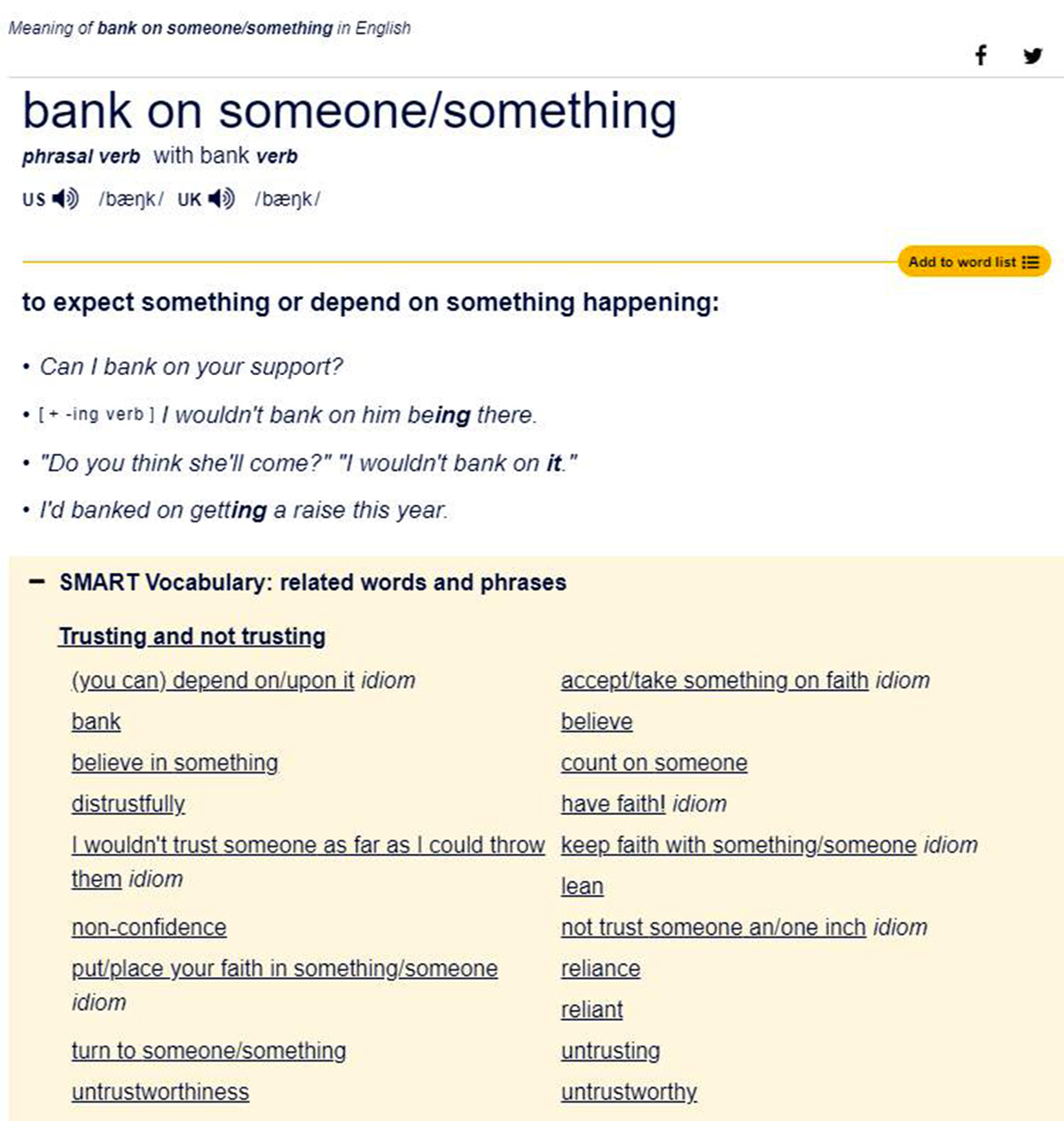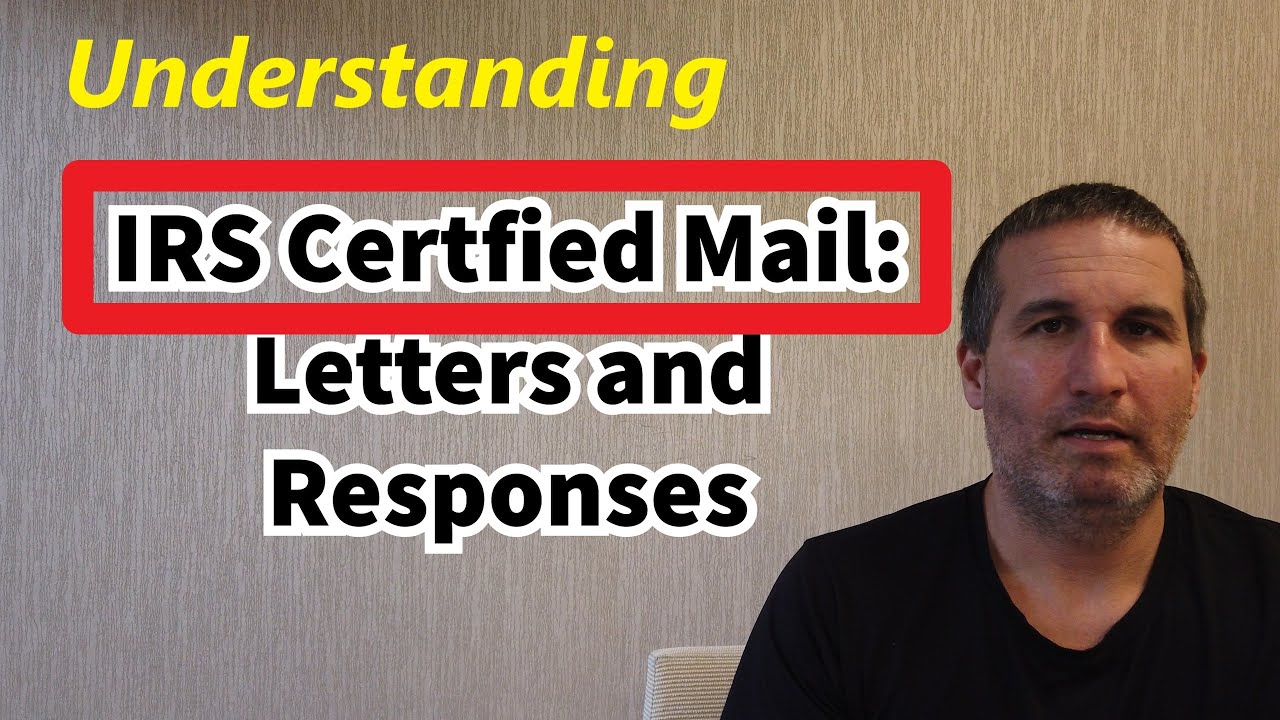

Finance
Why Does The IRS Keep Hanging Up On Me?
Published: October 31, 2023
Discover why the IRS keeps hanging up on you and get the financial guidance you need to resolve tax issues. Unlock expert advice at FinanceFinder.com.
(Many of the links in this article redirect to a specific reviewed product. Your purchase of these products through affiliate links helps to generate commission for LiveWell, at no extra cost. Learn more)
Table of Contents
Introduction
Dealing with taxes can be a daunting task for many individuals, and when it comes to seeking assistance from the Internal Revenue Service (IRS), it can sometimes feel like a never-ending struggle. One frustrating issue that many taxpayers encounter is the constant disconnection when trying to reach the IRS by phone. You may have experienced this firsthand, wondering why the IRS seems to keep hanging up on you.
In this article, we will delve into the reasons behind these disconnections, explore the challenges the IRS faces in providing phone support, and discuss strategies you can employ to navigate these obstacles.
It is essential to understand that the IRS receives an overwhelming number of calls each year, particularly during tax season. With millions of taxpayers seeking assistance or information about their returns, it’s no surprise that the phone lines can become strained.
So, let’s uncover the reasons behind these phone disconnections and find effective ways to overcome this frustrating hurdle.
Reasons for Getting Disconnected
There are several factors that contribute to getting disconnected when contacting the IRS. Understanding these reasons can help alleviate frustration and give you a better understanding of the challenges the IRS faces in providing phone support.
Lack of Phone Support Staff: The IRS has a limited number of phone support staff available to handle the vast number of incoming calls. This shortage of personnel leads to longer wait times and increased chances of getting disconnected. The IRS has been under budget constraints, which has resulted in reduced staffing levels, making it challenging for them to meet the demand for phone assistance.
High Call Volume: During peak tax season, the IRS receives an exceptionally high volume of calls. It’s not uncommon for millions of calls to flood their phone lines daily. The sheer volume of calls can overwhelm the system, causing disconnections or long wait times before you can speak with a representative.
Technical Glitches: Occasionally, technical glitches can disrupt the phone system and result in unintended disconnections. These glitches can be caused by various factors, such as network issues or system maintenance. While the IRS strives to minimize these disruptions, they do occur from time to time.
It’s important to note that getting disconnected does not necessarily mean that the IRS is intentionally hanging up on you. In most cases, it is a result of the challenges they face in managing the high volume of calls with limited resources. Understanding these reasons can help you approach the situation with more patience and explore alternative strategies for obtaining the information or assistance you need.
Lack of Phone Support Staff
One of the primary reasons for getting disconnected when contacting the IRS is the lack of phone support staff available to handle the influx of calls. The IRS, like any other organization, has a limited number of employees to manage customer inquiries and provide assistance over the phone.
The IRS has been subjected to budget cuts and reduced resources in recent years, leading to a decrease in phone support staff. This shortage of personnel creates a significant challenge in meeting the high demand for phone assistance, especially during the peak tax season.
With the complex nature of tax-related inquiries and the need for detailed explanations, it is crucial for the IRS to have sufficient staffing to provide accurate and timely assistance. However, the limited number of employees means longer wait times for callers, increasing the chances of getting disconnected before speaking with a representative.
Furthermore, the training required to become an IRS phone support representative is extensive and specialized. These agents need to have a deep understanding of tax laws, regulations, and procedures to effectively assist callers with their specific needs. This level of expertise and training takes time to develop, further contributing to the staffing challenges.
The shortage of phone support staff is a systemic issue rooted in budget constraints and resource allocation. While the IRS acknowledges the importance of phone assistance for taxpayers, they have faced numerous obstacles in effectively addressing this issue.
It’s crucial to keep in mind that the IRS is aware of the impact that limited phone support staff has on taxpayers. They are continuously working towards finding solutions to improve the phone support system and enhance the overall customer experience.
When contacting the IRS and facing the possibility of being disconnected, it’s important to approach the situation with patience. Recognize that the lack of phone support staff is not a deliberate attempt to hang up on you, but rather a result of the challenges the IRS faces in managing the high volume of calls with limited resources.
In the next section, we will explore strategies that can help you navigate these obstacles and improve your chances of successfully reaching the IRS and obtaining the assistance you need.
High Call Volume
One of the significant factors contributing to the frustration of getting disconnected when reaching out to the IRS is the exceptionally high call volume they experience, particularly during the tax season. It’s not uncommon for millions of taxpayers to call the IRS daily for assistance or information regarding their taxes.
During peak times, such as the weeks leading up to the tax filing deadline, the IRS’s phone lines can become overwhelmed with the sheer volume of incoming calls. The surge of inquiries and requests for support can exceed the capacity of the phone system, resulting in long wait times and increased chances of being disconnected before speaking with a representative.
The high call volume is influenced by several factors. Many taxpayers have questions about filing requirements, deductions, credits, and other aspects of the tax process. Some individuals may be experiencing issues with their tax returns that require direct communication with an IRS representative.
Furthermore, changes to tax laws and regulations, which occur frequently, often prompt additional inquiries from individuals seeking clarification. This added demand for information and assistance puts a significant strain on the IRS’s phone support system.
The IRS has taken steps to address the issue of high call volume, including implementing automated services and online resources to help alleviate some of the burden on their phone lines. However, the complexity of tax-related matters means that many individuals still prefer speaking directly with a representative to ensure they receive accurate and customized guidance.
While the IRS continues to explore ways to improve their phone support system, it is essential for taxpayers to be aware of the challenges posed by high call volume. Planning ahead and considering alternative methods of obtaining information can help alleviate frustrations when attempting to contact the IRS by phone.
In the next section, we will discuss strategies that you can utilize to navigate the high call volume and increase your chances of successfully connecting with the IRS.
Technical Glitches
Another common reason for getting disconnected when contacting the IRS is the occurrence of technical glitches within their phone system. Despite the IRS’s efforts to maintain a robust and reliable infrastructure, unforeseen technical issues can occasionally disrupt the phone lines and result in unintended disconnections.
These technical glitches can stem from various factors, including network interruptions, system maintenance, or software malfunctions. While the IRS strives to minimize such disruptions, it is difficult to completely eliminate them due to the complexity of their phone system and the vast number of calls they receive.
Network interruptions can occur due to external factors, such as severe weather conditions or telecommunications failures. These disruptions can affect the IRS’s ability to provide consistent phone support, leading to disconnections or difficulties in connecting callers to the appropriate representatives.
Similarly, routine system maintenance plays a critical role in ensuring the smooth operation of the IRS’s phone system. However, during these maintenance windows, the system may experience temporary outages or technical glitches that can result in disconnections for callers.
Software malfunctions can also contribute to technical glitches within the IRS’s phone system. Given the complex nature of the software used to manage and route incoming calls, there is always a possibility of encountering unexpected errors or bugs that can lead to disconnections.
It is essential to recognize that technical glitches, while frustrating, are often beyond the control of both the IRS and the taxpayer. When experiencing a disconnection due to a technical issue, it is advisable to remain patient and attempt to reconnect at a later time.
If you consistently encounter disconnections or experience difficulties reaching the IRS due to technical glitches, it may be helpful to explore alternative methods of obtaining the information or assistance you need. Utilizing online resources, such as the IRS website or self-service portals, can provide access to valuable information and tools without the reliance on phone support.
In the next section, we will discuss strategies you can employ to effectively deal with disconnections and increase your chances of successfully reaching the IRS for assistance.
Strategies for Dealing with Disconnections
Dealing with disconnections when trying to contact the IRS can be frustrating, but there are effective strategies you can employ to navigate this obstacle and increase your chances of successfully reaching a representative. Here are some helpful strategies to consider:
Calling during Non-Peak Hours: The IRS receives the highest call volumes during peak times, such as Mondays, early mornings, and right before the tax filing deadline. To avoid long wait times and potential disconnections, try calling during non-peak hours, such as mid-week or later in the day. By selecting quieter periods, you may have a higher chance of connecting with a representative without facing as much congestion in the phone lines.
Utilizing Online Resources: The IRS offers a wealth of information and resources on their official website. Before resorting to a phone call, take advantage of these online resources to find answers to common tax-related questions. The IRS website provides access to forms, publications, frequently asked questions (FAQs), and interactive tools that can address many common inquiries. By utilizing these resources, you may find the information you need without having to rely solely on phone support.
Seeking Assistance from a Tax Professional: If you are encountering complex tax-related issues or need personalized guidance, it may be beneficial to seek assistance from a tax professional. Tax professionals, such as certified public accountants (CPAs) or enrolled agents, have extensive knowledge and experience in navigating the intricacies of the tax system. They can provide valuable insights, help with tax planning, and address any concerns you may have.
Persistence and Patience: Dealing with disconnections can be frustrating, but it’s important to remain persistent and patient in your attempts to reach the IRS. Even if you experience multiple disconnections, try calling again or explore alternative methods of contacting the IRS. Remember that reaching a representative may require multiple attempts, and persistence can ultimately lead to a successful connection.
Additionally, it is crucial to have all the necessary documentation and information on hand when making your call. This will help streamline your conversation and ensure you provide the representative with accurate and relevant details. Being prepared can contribute to a smoother experience and minimize the chances of encountering issues or disconnections.
By employing these strategies, you can improve your chances of successfully reaching the IRS and obtaining the information or assistance you need. Remember, the IRS understands the challenges faced by taxpayers and continues to work towards enhancing their phone support system. However, by being proactive and exploring alternative methods, you can navigate the disconnection obstacles and make progress towards resolving your tax-related concerns.
In the next section, we will conclude our discussion and summarize the key points.
Calling during Non-Peak Hours
One effective strategy for dealing with disconnections when trying to contact the IRS is to call during non-peak hours. The IRS experiences the highest call volumes during certain times, such as Mondays, early mornings, and right before the tax filing deadline. These peak times often result in long wait times and increased chances of being disconnected.
By strategically choosing to call during non-peak hours, you can reduce the congestion in the phone lines and increase your chances of reaching a representative without facing as much difficulty. Here are a few tips to help you optimize your calling time:
- Mid-Week: Consider calling the IRS mid-week, such as on a Tuesday or Wednesday. These days often have lower call volumes compared to Mondays and Fridays, as many taxpayers tend to contact the IRS at the beginning or end of the week. By avoiding these peak days, you may experience shorter wait times and a smoother calling experience.
- Later in the Day: Try calling the IRS later in the day, preferably closer to their phone center’s closing time. As the day progresses, call volumes tend to decrease, which means there are fewer callers competing for assistance. By timing your call towards the end of the day, you may have a better chance of connecting with a representative quickly.
- Time Zone Considerations: If you reside in a different time zone than the IRS phone center you need to contact, consider taking advantage of the time difference. For example, if you live on the West Coast and need to reach an East Coast phone center, try calling early in the morning before the East Coast office becomes busy. This can give you an advantage in terms of reduced call volume.
Keep in mind that even when calling during non-peak hours, wait times and the potential for disconnections can still occur due to the high demand for phone support. However, by strategically selecting your calling time, you increase your chances of experiencing shorter wait times and a smoother connection process.
Remember to have all the necessary information and documentation readily available when you make your call. Being prepared will allow you to provide the representative with accurate details and ensure a more efficient conversation.
While calling during non-peak hours does not guarantee immediate access to a representative, it can give you an advantage and enhance your overall experience when reaching out to the IRS for assistance.
In the next section, we will explore another strategy for dealing with disconnections, which is utilizing online resources provided by the IRS.
Utilizing Online Resources
When dealing with disconnections or long wait times when trying to contact the IRS, utilizing online resources can be a valuable strategy to obtain the information or assistance you need. The IRS offers a range of online resources that can provide answers to common tax-related questions and help you navigate your tax obligations more efficiently.
Here are some ways you can utilize online resources provided by the IRS:
- IRS Website: The official IRS website is a treasure trove of information. It offers a variety of resources, including forms, publications, tax topics, and frequently asked questions (FAQs). You can search for specific topics or browse through the different sections to find answers to your tax-related inquiries.
- Interactive Tools: The IRS provides interactive tools and calculators to assist taxpayers with various aspects of their tax obligations. These tools can help you determine eligibility for certain tax credits, estimate your tax liability, track the status of your refund, and more. They are designed to provide quick and accurate information based on the inputs you provide.
- Online Account: Creating an online account with the IRS allows you to access additional features and personalized information. Through your online account, you can view past tax returns, check your account balance, make payments, and even set up payment plans if needed.
- Frequently Asked Questions (FAQs): The IRS website includes a comprehensive FAQ section that addresses common queries related to various tax topics. These FAQs can provide valuable insights and guidance on topics such as deductions, credits, filing requirements, and more.
- Virtual Assistance: The IRS offers virtual assistance through their website, where you can engage in online chat sessions with IRS representatives. This can be particularly helpful if you have specific questions or need clarification on certain tax matters.
By leveraging these online resources, you can access a wealth of information and tools at your convenience without having to rely solely on telephone support. This can be especially beneficial if you’re facing long wait times or frequent disconnections when attempting to contact the IRS.
It’s important to note that while online resources can be a valuable tool, they may not be able to address all unique or complex tax issues. In such cases, seeking assistance from a tax professional may be necessary to ensure accurate guidance tailored to your specific circumstances.
In the next section, we will discuss another strategy for dealing with disconnections, which is seeking assistance from a tax professional.
Seeking Assistance from a Tax Professional
When facing frequent disconnections or challenges in reaching the IRS for assistance, seeking help from a tax professional can be a highly effective strategy. Tax professionals, such as certified public accountants (CPAs) or enrolled agents, have the expertise and knowledge to navigate the complexities of the tax system and provide personalized guidance.
Here are some reasons why seeking assistance from a tax professional may be beneficial:
- Expertise and Experience: Tax professionals have extensive knowledge and experience in tax laws, regulations, and procedures. They stay up-to-date with the latest changes in tax codes, allowing them to provide accurate and reliable guidance tailored to your specific tax situation.
- Complex Tax Matters: If you’re facing complex tax issues, such as multiple income sources, self-employment income, investment portfolios, or international tax implications, a tax professional can provide valuable insights and help you navigate the intricacies of your tax obligations.
- Tax Planning and Optimization: A tax professional can assist you in developing effective tax planning strategies to minimize your tax liability. They can identify deductions, credits, and strategies that you may not be aware of, ultimately maximizing your tax savings.
- Audit Representation: If you’re facing an IRS audit or examination, having a tax professional by your side can provide peace of mind. They can represent you during the audit process, handle communication with the IRS, and ensure that your rights are protected.
- Tax Compliance and Deadlines: Tax professionals can help you stay compliant with tax laws and meet deadlines for filing returns, extensions, estimated tax payments, and other tax-related obligations. They can also assist in ensuring accurate completion of forms and minimize the chances of errors or omissions on your tax returns.
When selecting a tax professional, it’s essential to choose someone who is reputable and has the appropriate credentials. Look for professionals who are licensed, registered with the IRS, and have a strong track record of client satisfaction.
While seeking assistance from a tax professional may involve additional costs, their expertise and guidance can save you time, stress, and potentially reduce your tax liability. They can also provide you with customized advice that takes into account your unique financial situation and goals.
In situations where contacting the IRS proves challenging, a tax professional can act as your representative and advocate, handling any interactions or communications with the IRS on your behalf.
In the next section, we will discuss the importance of persistence and patience when dealing with disconnections and difficulties in reaching the IRS.
Persistence and Patience
When facing disconnections or challenges in reaching the IRS, it’s important to remember the value of persistence and patience. Dealing with taxes can be complex, and navigating the IRS’s phone support system can sometimes be frustrating. However, by maintaining a persistent and patient approach, you can increase your chances of successfully connecting with a representative and resolving your tax-related concerns.
Here are some reasons why persistence and patience are crucial when dealing with disconnections:
- Multiple Attempts: Don’t get discouraged if you experience a disconnection or long wait times during your initial calls. Try calling again at different times or on different days. Keep in mind that reaching a representative may require multiple attempts, but your persistence can ultimately lead to a successful connection.
- Alternative Methods: If you’re finding it difficult to connect with the IRS by phone, explore alternative methods of obtaining the information you need. Utilize online resources provided by the IRS, seek assistance from a tax professional, or consider visiting a local IRS office in person. Being open to different approaches can increase your chances of finding a solution.
- Preparation: When making a call to the IRS, ensure you’re prepared with all the necessary information and documentation. This will help streamline your conversation and ensure you provide the representative with accurate and relevant details. Being organized and prepared can contribute to a more efficient and effective interaction.
- Remain Calm and Polite: It’s understandable to feel frustrated or anxious when facing difficulties in reaching the IRS. However, it’s important to remain calm and polite during your interactions. Take a deep breath, stay composed, and approach the conversation with a respectful and cooperative demeanor. A positive attitude can go a long way in establishing better communication and potentially resolving your concerns more effectively.
Remember that IRS phone representatives are there to assist you, and they understand the challenges faced by taxpayers. By maintaining a patient and persistent mindset, you can navigate the disconnection obstacles while working towards a resolution.
If you continue to encounter difficulties in reaching the IRS or resolving your tax-related concerns, consider seeking assistance from a tax professional. They can provide guidance, represent you in interactions with the IRS, and help navigate complex tax matters.
It’s important to stay proactive and persistent in pursuing the resolutions you seek. By adopting a patient and determined approach, you can increase your chances of successfully addressing your tax concerns and obtaining the information or assistance you need.
In the final section, we will summarize the key points discussed and conclude the article.
Conclusion
Dealing with disconnections when trying to contact the IRS can be frustrating, but understanding the reasons behind these issues and employing effective strategies can help you navigate the obstacles and increase your chances of obtaining the information or assistance you need.
In this article, we explored various factors contributing to disconnections, such as the lack of phone support staff, high call volumes, and technical glitches. We also discussed strategies to deal with disconnections, including calling during non-peak hours, utilizing online resources provided by the IRS, seeking assistance from a tax professional, and maintaining persistence and patience.
It’s important to remember that contacting the IRS by phone can be challenging, especially during peak times or with limited phone support staff. However, by adopting a proactive mindset and exploring alternative methods, such as online resources or seeking professional advice, you can overcome these challenges and make progress in resolving your tax-related concerns.
Throughout the process, it’s crucial to remain patient, persistent, and calm. Understand that the IRS faces significant demands and limitations, and disconnections are often unintentional. By staying composed and maintaining a cooperative attitude, you can enhance your chances of a successful connection and productive interaction with the IRS.
If you continue to encounter difficulties or find it challenging to reach the IRS, consider seeking assistance from a tax professional. These individuals have the expertise and knowledge to navigate complex tax matters and can provide personalized guidance tailored to your specific circumstances.
Remember, reaching the IRS may require multiple attempts, and patience is key. Stay informed, explore alternative options, and proactively seek the solutions you need.
In conclusion, while getting disconnected when trying to contact the IRS can be frustrating, understanding the reasons behind these issues and employing the strategies discussed in this article can help you overcome obstacles and improve your chances of successfully reaching the IRS. By being patient, persistent, and utilizing available resources, you can navigate the complexities of the tax system and receive the assistance you need.














